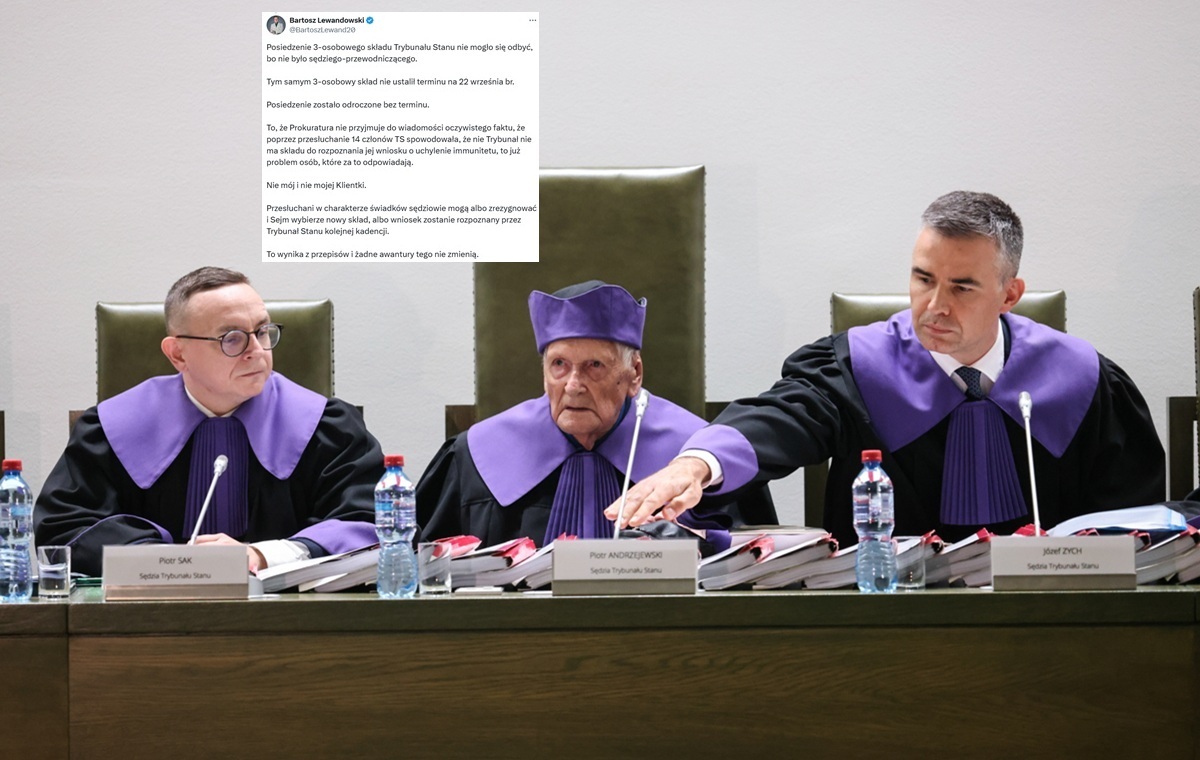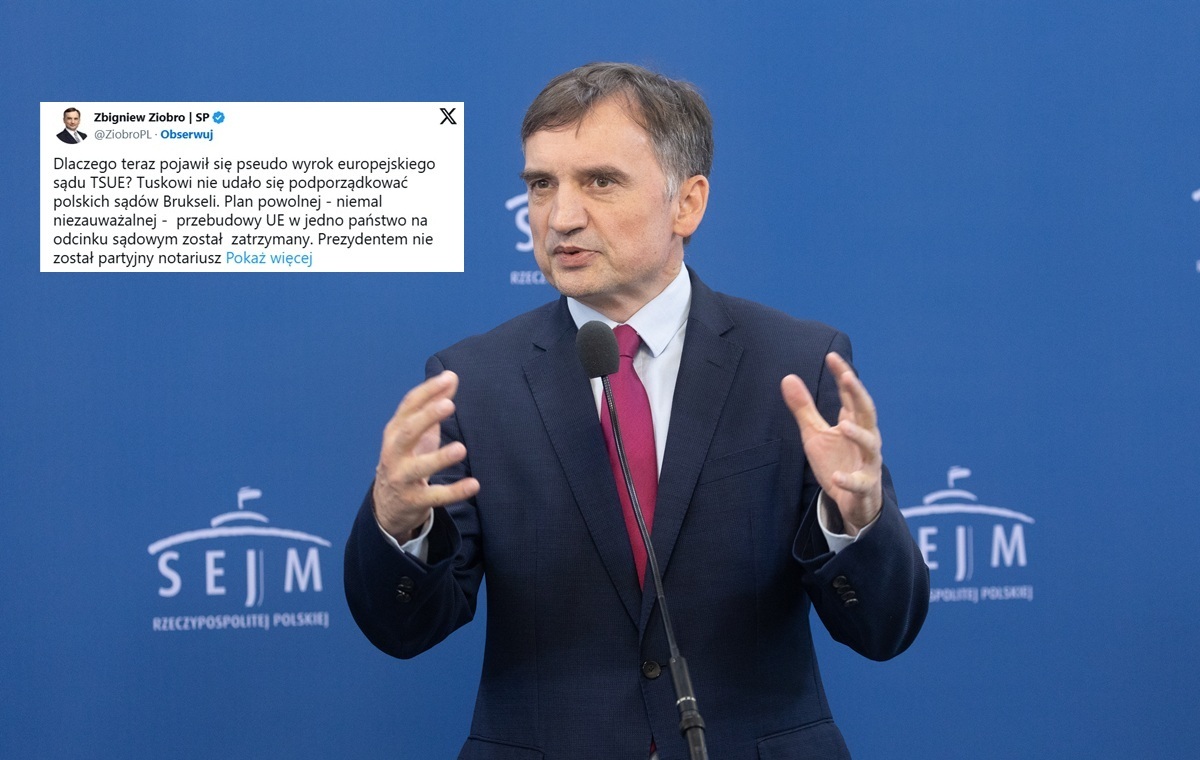It is possible to correct the judgement in civilian matters under Article 350(1) of the Code of civilian Procedure, which states that the court may, of its own motion, correct in the judgement of inaccuracy, clerical or accounting errors or another manifest errors.
Reference to the correction on the first judgment
The rectification shall be indicated on the first of the judgement and, at the request of the parties, on the extracts granted to them. Further copies and extracts should be edited in the wording of the order for correction (Article 350(2) kpc).
Scope of the correction of the judgment
Correcting the judgement may consist of removing inaccuracy, correcting clerical or accounting errors or correcting another manifest errors. However, it must not lead to a change of outcome (Yes: ultimate Court judgement of 13 January 2005, No. III CK 155/04, LEX No. 371487).
Court of Appeal in Poznań, in a decree dated 19 September 2017. (I ACz 1245/17, Legalis number 1673956), stated that the rectification of the judgement provided for in Article 350(1) of the KPC was intended to destruct the incompatibility between the actual will and the cognition of the court and their expression in writing. Therefore, by way of correction, a distortion of the result of the court should be removed, either apparent inaccuracy or another apparent error, and in peculiar a clerical or accounting error, with this inaccuracy or mistake to be obvious, i.e. it should be evident from the content of the judgement itself.
Prohibition of interference of the court in the substantive content of the judgement at the correction
The disadvantages mentioned in the hypothesis of Article 350(1) of the judgement must be characterised by a characteristic of obviousness, which at the same time constitutes a limit on the admissibility of correction. It is not permissible in this way to lead to any interference in the applicable or subjective aspect of the judgment. The application of Article 350 kpc cannot lead to a substantive revision of the judgment. The correction provided for in Article 350 kpc serves to remove from the text the judgement of inaccuracy, clerical or accounting errors or another manifest errors, and not to remedy the serious defects of the judgement (yes: order of the ultimate Court of 31 January 2007, act No. II CSK 314/06, IC 2008, No. 12, p. 45 and ultimate Court judgement of 17 June 2014, I CSK 422/13, LEX No. 1532772).
The intent of correcting the judgement provided for in Article 350(1) kpc is to remove the contradiction between the actual will and the cognition of the court and their expression in writing. The correction authority must not be utilized to remedy substantive errors in the resolution of the case, it must not lead to its amendment, and the shortcomings mentioned in Article 350(1) of the judgement must be characterised by a characteristic of obviousness, which sets the limit of admissibility of specified interference (yes: orders of the ultimate Court: 13 June 2013, V CZ 28/13, LEX No 1375536; 31 January 2007, II CSK 314/06, LEX No 445207; 20 August 1998, III CCU 35/98, LEX No 1216932; 25 November 1976, II CZ 97/76, LEX No 7882; 3 March 1976, II CZ 11/76, LEX No 7806; 10 March 1966, II CZ 1966, LEX No 5950).
In its order of 17 May 2000, the ultimate Court of 17 May 2000, Case I CZ 60/00 — L. held that it was unacceptable to correct the judgement as to the content and size of the benefit or Legal arrangements (similarly: ultimate Court order of 3 March 1976, II CZ 11/76; ultimate Court order of 25 November 1976, II CZ 97/76; ultimate Court order of 7 July 1999, III RN 24/00, territory Court order of 27 July 2018, Act IV Ca 347/18).
Obviousness of the mistake in the judgment
How a flaw is accepted in the doctrine is expressed in the fact that it is immediately known, visible from the very content of the judgement and arising straight from the case file. apparent mistake results either from the nature of the mistake itself, or from a comparison of the judgement with the justification, with the content of the suit or another circumstances (so: Kazimierz Piasecki in: Corrigendum, Complement and explanation of Judgments of civilian Courts, P. 1961, No. 9, p. 9).
This is simply a mistake so apparent that it does not rise any doubts both between the parties, the court and any another entity. The reason for the manifest flaws of the judgement to be corrected is only the mistake of the decision maker, the court (order of the Słupsk territory Court of 27 July 2018, Act IV Ca 347/18).
Correction of mistake in the judgement on the size of the benefit
An institution to correct a judgement cannot be utilized to destruct substantive errors in the resolution of a case. The correcting cannot, for example, apply to the size of the service. specified an mistake in the judgment, although contrary to the choice of the decision-making body, should be eliminated by appeal — first of all by appeal, and, in the case of the judgement of the second instance, by cassation action (yes: judgement of the ultimate Court of 19 November 2015, IV CSK 764/14, LEX No 1962543). The annulment of the judgement must not lead to a fresh decision or to the completion of the erstwhile decision (yes: ultimate Court judgement of 5 November 2015, V CNP 6/15, LEX No 19185).
The ultimate Court, in its judgement of 10 May 2018, Case I UK 110/17, indicated that the correction of the judgement could never lead to a change of the decision itself, so it could not concern content andthe size of the service or the determination of the law (in a case in the field of social security, initiated by an appeal against the decision of the pension authority, may not relate to the scope of the dismissal or the inclusion of the appeal). While it may happen that the circumstantial ruling contained in the judgement contains an mistake resulting from a mistake and is so not in line with the intention of a judge’s composition, specified an mistake can only be corrected by way of appeal against a judgement in the course of an instance or by bringing an action for appeal.
The concept of inaccuracy in the case law of courts
The ultimate Court’s caselaw includes a misdetermination of the party, but in that case, erstwhile the organization died in the course of the proceedings, and the judgement mostly mentions the ‘deceaser of the deceased’ (judgment of the ultimate Court of 21 November 1950 C 353/50, OSN 1961, item 47); in another judgement for inaccuracy, to be corrected, the rejection of the suit after the judgement was given in absentia without simultaneous annulment of that judgement by default (resolution of the ultimate Court of 9 March 1962 3 CO4/62, OSN 1962, item 121)
Correcting an mistake resulting from a page error
Correction of the judgement concerns errors, inaccuracies and errors of the court. The judgement should not be corrected erstwhile its mistake is simply a consequence of the party's mistake (which, for example, gave another name to the defendant) (so: e.g. the ultimate Court ruling of 3 September 1945, Case C.I. 571/45, LexPolonica No. 329705, Pip 1946, No. 1, p. 96; otherwise: the ultimate Court ruling of 13 January 1964, Case C.I. 571/63, OSNCP 1965, No. 2, paragraph 27).
Cause of mistake by the claimant in the judgement on the incomplete determination of the defendant
The ultimate Court in its decision of 30 July 1996, Act mention I CRN 96/96, LEX No 1634924, pointed out that the provision of Article 350 kpc enabling the Court of First Instance of its own motion to correct in its judgment, inter alia, inaccuracies, does not exclude that power in cases where inaccuracy was a consequence of a mistake caused by a party. The content of the legal standards contained in the provision of Article 350 k.c. does not give emergence to the claim that, since the mistake is not a mistake of the Court of First Instance but is due to a misidentification by the plaintiff of the defendant, it is not subject to correction under Article 350 kpc. That provision does not contain any specified substantive restrictions.
Therefore, in the circumstantial factual situation of the case, it cannot be ruled out at present that the judgement is manifestly inaccurate, in the form of an incomplete name of the party, even if it conforms to the designation given in the application, if there are adequate grounds for the Court of First Instance to conclude that the full wording of the name of the organization active in the proceedings deviates from the wording set out in the application.
In another words, the Court of First Instance cannot faithfully repeat, following a lawsuit, the designation of the organization simply due to the fact that specified a designation was given in the application, but is obliged to clarify the doubts raised if its existence results from a careful assessment of the material collected in the case of the trial and justifies the suspicion that the application contains an inaccurate designation of the procedural party. The inaccuracy to be corrected pursuant to Article 350 of the Code is so specified an indication of the organization in the operative part of the judgment, which, although faithful to the application, is contrary to the material collected and contrary to the actual state of the case.
The territory Court, in its decision of 16 May 2014, indicated that it was the applicant who initiated the procedure and that its decision and findings depended on the determination of a group of participants. Any negligence in this respect and the resulting inaccuracy shall be borne by the organization initiating the proceedings. The court is, of course, obliged to verify the data provided by the applicant and to request (even without the applicant's initiative) the applicable persons to take part in the case (Article 510 §2 kpc), but this work cannot be limited to questioning, of its own motion (although there is no doubt) the reliability of the authoritative papers submitted by the applicant.
Similarly, the ultimate Court adopted, in its judgement of 8 June 1977, the mention to Act IV PRN 4/77, LEX No 7945, stating that the rule is to correct the mistake of the court alternatively than the mistake of the organization itself, where in another letters the designation of the organization was correct, it was for the court to clarify the discrepancy and establish the correct wording.
However, in the order of 10 December 2001, the mention to Act I PZ 93/01, LexPolonica No. 365216, OSNP 2003, No. 24, No. 597 of the ultimate Court indicated that correction of inaccuracy may consist in the appropriate marking of the parties by precise mention of the names of the parties to the proceedings or their full name (a.k.a.: ultimate Court judgement of 18 June 1998, No. II CKN 817/97, LexPolonica No. 333580, OSNC 1999, No. 1, No. 16).
Non-revocation of the judgement by default on rejection of the action
The apparent mistake is not to revoke the judgement by default in dismissing the suit (yes: ultimate Court resolution of 9 March 1962, No. 3 CO4/62, LexPolonica No. 317047, OSN 1962, No. IV, No. 121).
Correction of the judgement by the second instance
If the case is pending before a second instance, that court may, of its own motion, rectify the judgement of the first instance (Article 350(3) kpc).
Inadmissibility of a request to correct a judgement lodged only for hold in the proceedings
As provided for in Article 350(1) of the Code, a request for the correction of a judgement lodged only for hold in the proceedings is inadmissible. A second and further application made by the same organization to the same judgement shall be considered as an application made only for hold in the proceedings, unless the circumstances of the case exclude that assessment (§ 2).
The request for correction of the judgement made only for hold shall be left to the case file without further action. The same applies to writings relating to its submission. Leave the application and the letters relating to its submission shall be notified to the requesting organization only once, erstwhile the first letter is lodged.
Correction of the judgement and the period for bringing an appeal
The request for correction (as well as the addition or explanation of the judgment) does not affect the time limit for bringing an appeal (Article 353 kpc).
Complaint on the correction of the judgment
Pursuant to Article 394 1a(1)(8)(kpc), a complaint to another composition of the first instance court shall be given to the order of that court, the subject of which is to correct or interpret the judgement or to refuse it.
Court fee from complaint onrectification of the judgment
The ultimate Court, in its resolution of 11 September 2020, No. III of the CZP 86/19, which settles the legal issue, reads: ‘Is the complaint against a decision to correct a judgement subject to a basic charge of PLN 30 resulting from Article 14(1) of the Law on Judicial Costs in civilian Matters, or to a comparative fee calculated on the basis of Article 19(3)(2) of the abovementioned Law’, expressed the view that a complaint against a decision to correct or refuse to rectify a judgement shall be made to the fee referred to in Article 19(3), point (2), in conjunction with Article 13 of the Law of 28 July 2005 on Judicial Costs in civilian Matters (single text: OJ of 2020, item 755, as amended).
Article 19(3)(2) of that Law provides that the 5th part of the charge shall be levied on the complaint, unless otherwise provided for in the peculiar provision. Article 13(1) states that in property rights cases, a fixed fee established in accordance with the value of the subject substance of the dispute or the value of the subject substance of the appeal is to be charged on the letter of appeal.
Correction of judgement and appeal
The ultimate Court, in its judgement of 4 November 2010, IV CSK 188/10 (OSNC 2011, No. 7-8, item 86), expressed the view that it was permissible to challenge a cassation action of the order of the second instance of the judgement to correct the judgement if it in fact amended that judgement on the substance. This position was supported by the ultimate Court in its judgement of 10 May 2018, No. I UK 110/17.
In its judgement of 4 November 2010, Case IV CSK 188/10, OSNC 2011/78/86, The ultimate Court pointed out that the order of the second court to correct the judgement and, in fact, to amend that judgement as to the substance (in fact interferes in the substantive decision), is subject to appeal, not a complaint, but an appeal or a cassation action, unless cassation complaint the case is not entitled (similarly: ultimate Court judgement of 17 June 2014, Case I CSK 422/13, LEX No 1532772 and ultimate Court judgement of 18 March 2015, Case I PK 162/14, LEX No 1678949).










